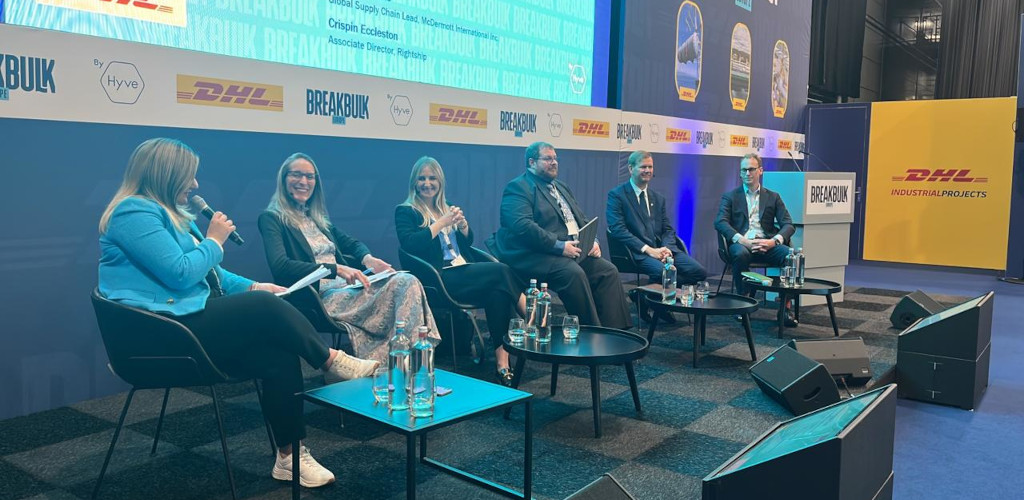Industry Leaders Stress Need for International Standards and Transparency

By Liesl Venter
Breakbulk Europe 2023: To meet ever-increasing regulatory demands, shipowners and associations are calling for harmonisation of regulatory standards regionally and globally to move the ESG agenda forward.
Participating in a session on ESG and the supply chain at Breakbulk Europe, Evina Fotiadou, policy advisor for the European Community Shipowners Association, emphasised the importance of international standards and highlighted the need for a level playing field to ensure certainty in the shipping sector, while at the same time preventing the loss of talent or affecting the attractiveness of the shipping sector at large.
“Shipowners recognise the importance of ESG and understand the significance of complying, but we need harmonisation of regulations not only regionally but globally,” she said. “Compliance becomes challenging and costly for shipowners without clear guidelines and harmonisation across regions.”
Just as important was transparency, said Crispin Eccleston, associate director of RightShip, considering the growing pressure on the shipping industry to comply with ever-changing ESG regulations.
“Investor demands and expectations exert significant influence, creating a triangular dynamic with shipowners caught in the middle,” he said.
“The pressing issue revolves around the availability of funds and the extent of pressure imposed upon shipowners. Adding to the complexity, the shipowner must also consider the interests of clients and immediate charters. Navigating this squeezing triangle proves challenging, particularly when aligning with the myriad acronyms in the ESG sector. Every step requires nuance and a deep understanding, as there is still much to be learned and comprehended in this evolving landscape. Undertaking such a task is by no means easy.”
More harmonisation and alignment would simplify processes and improve ESG compliance, said Jason Williams, global supply chain lead at McDermott International. “We are still in the infancy of this process. The movement has been slow, but improving alignment and increasing transparency will speed it up. We have seen this happen with local content regulations around the world.”
According to Alex Walster, head of ESG at Navigator Gas, stakeholder conversations are changing as business realises the benefit of investing in lower technology emissions instead of just paying for compliance.
“Many of us are still in the process of getting to grips with the new regulations and understanding the impact it has on our businesses while aligning conversations with stakeholders across the supply chain. More standardisation of regulations will be important in the future. Ultimately, regulations will force shipowners to act, which is good.”
Henriette Dybkær, head of membership engagement at BIMCO, said the shipping industry needed to remain part of the regulatory conversation through their various organisations, associations and memberships. “We must be part of this conversation that is, in turn, impacting our contracts, clauses, agreements and training. Our inputs as an industry to the International Maritime Organisation and other regulatory bodies is important to make it easier for us as an industry to comply.”
The panel, led by moderator Gina Panayiotou, founder and CEO of Oceans Arena, agreed that in light of more harmonisation and standardisation, shipowners would find ESG compliance far less of a burden to implement, ultimately driving down cost and affecting the long-term change needed for sustainability.





